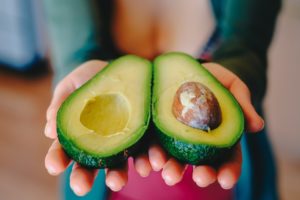 A good majority of health-conscious men and women are of the opinion that avocado, variously referred to as alligator pear, has an unusually high concentration of total fats, rendering the fruit’s consumption unsuitable for heart health. Yes, it’s true-every 100g of the fruit contains 14.66g of fat-but 67% of its total fat content comprises monounsaturated fat in the form of oleic acid, the same type that abounds in oil extracted from olives. Nutritionists, dieticians, and health experts continue to emphasize on the significance of monounsaturated fats for maintaining the health of the heart. Avocados are also endowed with minerals, vitamins, and dietary fibers that make the fruit’s consumption beneficial for cardiovascular health.
A good majority of health-conscious men and women are of the opinion that avocado, variously referred to as alligator pear, has an unusually high concentration of total fats, rendering the fruit’s consumption unsuitable for heart health. Yes, it’s true-every 100g of the fruit contains 14.66g of fat-but 67% of its total fat content comprises monounsaturated fat in the form of oleic acid, the same type that abounds in oil extracted from olives. Nutritionists, dieticians, and health experts continue to emphasize on the significance of monounsaturated fats for maintaining the health of the heart. Avocados are also endowed with minerals, vitamins, and dietary fibers that make the fruit’s consumption beneficial for cardiovascular health.
Monounsaturated Fats
Avocado, scientifically called ‘Persea Americana’ together with all its known variants and cultivars, release about 670kJ of energy per serving which is much higher than similar servings of most fruits. No wonder then that the fruit is rich in vitamins C, E, and K and numerous B vitamins. However, avocadoes have a very good concentration of total fats, mostly in the form of monounsaturated fats.
Each 100g serving of avocado contains 9.80g of monounsaturated fat and 2.13g of saturated fats. From the perspective of health, especially heart health, monounsaturated fats are most effective compared to polyunsaturated fats and saturated fats. Monounsaturated fats not only help raise HDL (good cholesterol) levels in the bloodstream but also significantly lower ‘bad cholesterol’ or LDL.
Potassium
All varieties of avocado are plentiful in minerals, particularly potassium. Two of the most popular varieties, ‘California Hass’ and the Florida ‘Choquette’ contain 507mg and 351mg of potassium respectively. The amount of salt as well as the type and quantities of dietary fat consumed together with the frequency of physical exertion programs have a considerable bearing on the blood pressure, if the AHA (American Heart Association) is to be believed. It is estimated that about — Americans are plagued with hypertension or high blood pressure.
Following a DASH (dietary approach to stop hypertension) diet, comprising food items and preparations loaded with potassium, calcium, and magnesium will go a long way in effectively bringing down blood pressure. Potassium, along with the other vital minerals, contributes towards muscle relaxation and on its own, counteracts the adverse effects of excessive sodium content in the body.
Dietary Fibers
All food items and beverages imbued with nothing less than 5g dietary fiber in every serving are classified under foods abounding in dietary fibers. In this respect, a 100g serving of Hass avocado in raw form, supplies 6.8g of dietary fiber to the body while an identical serving of the ‘Choquette’ variety delivers 5.8g. An adult female needs about 21g of dietary fibers on a daily basis which implies that a single serving of avocado will cater to approximately 34% of that requirement. Dietary fibers, along with monounsaturated fats, are instrumental in reducing abnormally high LDL levels.
Vitamin E and B-Vitamins
Avocadoes contain copious proportions of the B-vitamins, B-5, B-6 and Niacin (B-3) and Folate and eating the fruit regularly promotes energy metabolism which in turn encourages formation of new cells and DNA. Consuming food items containing an abundance of Folate and B-vitamins also brings down homocysteine levels.
For leading a disease-free and healthy life, you can talk to Dr. Decuypere by dialing 727-449-8080 or log in at www.decuyperechiropractorclearwater.com for more details.
Image credit: coyot









